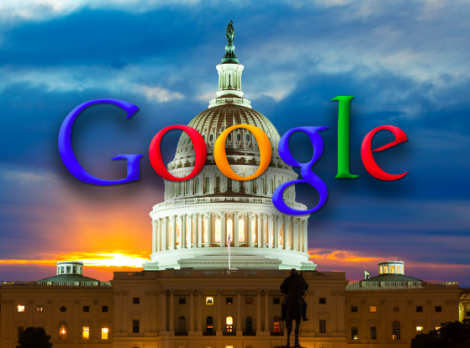 NEWS
NEWS
 NEWS
NEWS
 NEWS
NEWS
![]() Google has just issued a legal challenge to the secret FISA court over its gag order that prevents it from being upfront with its customers over how many government data requests it receives. The company cites the First Amendment and the “right to free speech” as justification for its challenge, saying that “greater transparency is needed” to reassure its customers.
Google has just issued a legal challenge to the secret FISA court over its gag order that prevents it from being upfront with its customers over how many government data requests it receives. The company cites the First Amendment and the “right to free speech” as justification for its challenge, saying that “greater transparency is needed” to reassure its customers.
On the face of it, it looks like a step in the right direction. Few will disagree that we need more transparency in light of PRISM, and Google’s request seems perfectly reasonable. It says that so-called ‘criminal requests’ should not be lumped together with ‘national security requests’ (PRISM requests, in other words), saying that do to so “would be a backwards step for our users”.
Under Google’s proposal, the company would be able to report the number of ‘criminal’ and ‘national security’ requests separately, with specific figures on how many users those requests affect. It wouldn’t give up any details of those FISA requests however – rather, all it would do is show the number of requests the government makes each year.
Okay, so Google’s idea probably would be slightly more transparent – although President Obama would have you believe that PRISM is already transparency in action – but one can’t help thinking that all it’s trying to do is pull the wool over our eyes. Google’s latest legal maneuvering isn’t about transparency or trying to protect its users, it’s about Google looking after Google, and trying to repair its damaged reputation.
The wording in Google’s legal filing seems to reinforce this view, asserting that:
“[The Guardian newspaper] published a story mischaracterizing the scope and nature of Google’s receipt of and compliance with foreign intelligence surveillance requests. In particular, the story falsely alleged that Google provides the U.S. government with “direct access” to its systems, allowing the government unfettered access to the records and communications of millions of user (sic).”
This statement shows that Google’s reputation and its business have certainly been harmed by the allegations made against it, and as a result its users have every right to be concerned. Google therefore knows that it cannot just respond to such claims with more generalities like its original denial when the PRISM story first emerged – it has to be seen to do something more concrete to reassure people, regardless of whether or not it’s actions will actually make any difference.
Support our mission to keep content open and free by engaging with theCUBE community. Join theCUBE’s Alumni Trust Network, where technology leaders connect, share intelligence and create opportunities.
Founded by tech visionaries John Furrier and Dave Vellante, SiliconANGLE Media has built a dynamic ecosystem of industry-leading digital media brands that reach 15+ million elite tech professionals. Our new proprietary theCUBE AI Video Cloud is breaking ground in audience interaction, leveraging theCUBEai.com neural network to help technology companies make data-driven decisions and stay at the forefront of industry conversations.